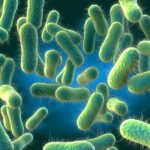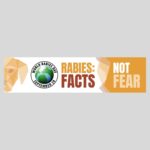Food allergy
Food allergy is an abnormal immune system reaction to a food or a substance in a food. The immune system identifies the food as a danger and triggers a protective response. Even a tiny amount of the allergy-causing food can trigger the reaction.
Symptoms of food allergy
Symptoms of an allergic reaction can present in various forms and may involve the skin, the respiratory tract, the gastrointestinal tract, or the cardiovascular system. They can present in one or more of the following forms:
- Hives (skin rashes/welts)/itchy skin
- Vomiting
- Stomach cramps
- Shortness of breath
- Wheezing
- Repetitive cough
- Stuffy/runny nose
- Swelling of the tongue/lips
- Weak pulse
- Dizziness or feeling faint
When the symptoms are severe, it is called anaphylaxis. This can become life-threatening as it may hinder proper breathing and can send the body into shock. Such a reaction can also affect various parts of the body (stomach, chest, skin) at the same time.
Causes of food allergy
There is the possibility that any food can cause allergy, but there are some foods commonly associated with food allergy including –
Tree nuts such as walnuts, almonds, and cashews
- Groundnut/peanut
- Egg
- Fish
- Wheat
- Soy
Can allergy develop in adulthood?
Often, allergic reaction to foods begins in childhood. In some cases, children outgrow the allergy as they get older, but some do not. However, some allergies are developed during adulthood. For instance, someone can suddenly begin to react to a food or food substance that he/she was never allergic to in the past.
Understand what causes the allergy and know how to prevent it
Symptoms of food allergy can occur within minutes of eating the food, in some cases, hours. Also, exposure to the allergens can induce the allergy without direct consumption.
If you suspect that you have a food allergy, you need to be able to pinpoint the exact food that triggers the reaction, know the quantity and the method of preparation/consumption that affects it. Then, your pharmacist or doctor can help you with tests and treatment.
It is important that you also know the type of reaction and how long the reaction lasts to help your healthcare provider with diagnosis and treatment. It will also help you to avoid the offending food/food substance.
Another important reason for you to track these details is that it is not every reaction to food that can be diagnosed as a food allergy. It could be some other ailment.
The basic way to prevent food allergy is to know what triggers it and avoid that, knowing that the allergy can be severe or mild at any given time that one is exposed to that food. This may prove difficult if you eat out often. Therefore, one needs to be wary of what he/she eats outside.
It is also advisable to thoroughly read the ingredient labels of food items before consumption.
Your healthcare provider will prescribe the right medications for your food allergy. As a matter of necessity, you need to have such medication on you at all times in case you unknowingly consume the food that you are allergic to.
Remember, do not indulge in self-medication or drug abuse because you are trying to ward off food allergies. Always consult your doctor or pharmacist.



